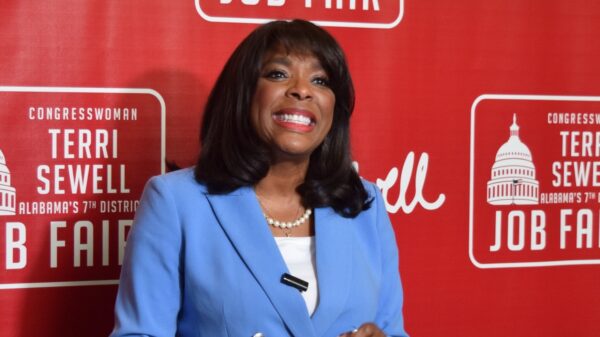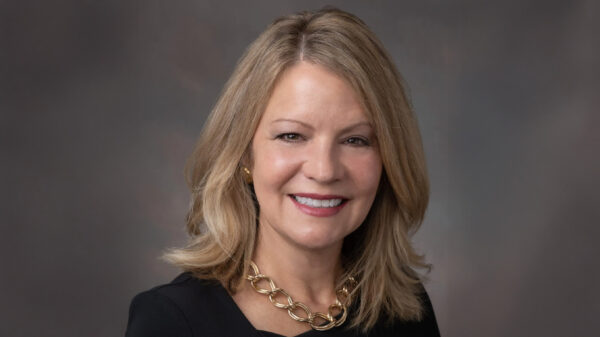The annual public policy forum for the Public Affairs Research Council of Alabama concluded Friday afternoon with discussions between current and former policymakers, including a legacy keynote speech by Alabama Governor Kay Ivey.
The discussions included former U.S. Sen. Doug Jones; U.S. Rep. Terri Sewell, D-Alabama; and U.S Rep. Robert Aderholt, R-Alabama, among other PARCA members and speakers. The weeklong forum, titled “Alabama Online: Failure to connect,” split into five individual virtual sessions, explained and examined issues and opportunities in providing access to broadband internet for residents in Alabama, a state consistently ranked among the lowest in internet infrastructure and broadband availability.
According to the American Community Survey in 2019, 23 percent, or nearly one in four Alabama residents, do not have internet. Of those, 14 percent rely on their mobile phone for internet. Only 57 percent of people have high-speed internet in Alabama, placing the state at No. 47 in the union for broadband access, behind only Oklahoma, Arkansas and Mississippi.
“The expansion of broadband internet is one of the greatest infrastructure challenges in 21st century America,” Ivey said in her keynote address Friday. “The COVID-19 pandemic strongly reinforced the need for broadband, a need that will continue to require a dedicated group efforts in innovative solutions.”
Ivey mentioned the Alabama Broadband Connectivity for Students program, a program that has allowed more than 200,000 students to connect to broadband internet, which she said is being cited “as a model for states across the nation to follow.”
The governor also reported on The Alabama Broadband Accessibility Fund, a program created in 2018, has provided $19.8 million in grants to 55 projects as of May 2020, according to Ivey. “These projects represent approximately 25,134 new services to households, businesses and community institutions across Alabama, at an average grant cost of $788 per service,” Ivey said.
Despite this push, the governor’s proposed budget for the 2022 fiscal year, while open to revision by legislators, has yet to allocate more money on top of established grant funds to broadband in Alabama. Funding remains one of the largest impediments to the improvement of Alabama’s broadband access, on top of inadequate infrastructure and general technology illiteracy.
Although both Republicans and Democrats alike agree on broadband, action on broadband availability remains slow and stagnate, according to Jones.
“People had talked about it for years and years, and everybody recognizes the issue and recognizes the problem but it’s kind of like being at a 10-year-long fiddler’s convention when everybody was just tuning up but nobody really wanted to start playing,” Jones said. “Almost every issue is a bipartisan issue in Congress. How you get there, though, is a whole different story.”
“I don’t think anybody that can think that this is an issue where everybody’s just singing Kumbaya in Washington D.C., and it’s going to happen — and the same is true Montgomery,” Jones said.
Recently, the passage of Senate Bill 215, a bill that would create a state broadband czar able to issue contracts paid by gambling revenue to companies, show present steps towards expanding broadband to underserved communities.
At the beginning of Friday’s discussion, both Sewell and Aderholt explained their efforts in Washington to bring federal support for broadband expansion in Alabama. Sewell is a member of the House Ways and Means committee’s Rural and Underserved Communities Health Task Force, a bipartisan task force created in 2019.
“It’s a bipartisan effort to really talk about rural issues, and try to find some synergies across political lines,” Sewell said. “One of the things that we all agree on is the need for broadband, and the need to make sure that it is equitably distributed and access is for all people. We know that that’s possible, if we have the political will, and if we have the money. So it’s going to be really important, I think, for the state of Alabama and the federal government to work to make sure that we have a big bold strategy to secure resilient broadband.”
“Broadband and internet has become the new electricity of our generation. It’s important that we make sure that we get access to everything,” Sewell said.
“I think really trying to make sure our federal agencies are all on the same page as we move forward — I think that’s something that’s vitally important,” Aderholt said. “This is important for agriculture, as well as medicine as well as academics, you name it. So I’m really trying to close that digital divide, making sure that everyone is working off the same page, making sure that everyone is working together not duplicating efforts.”
“I think that’s what we got to make sure, that we are not stove-piped in different agencies and doing their own thing and working together,” Aderholt said.




















































